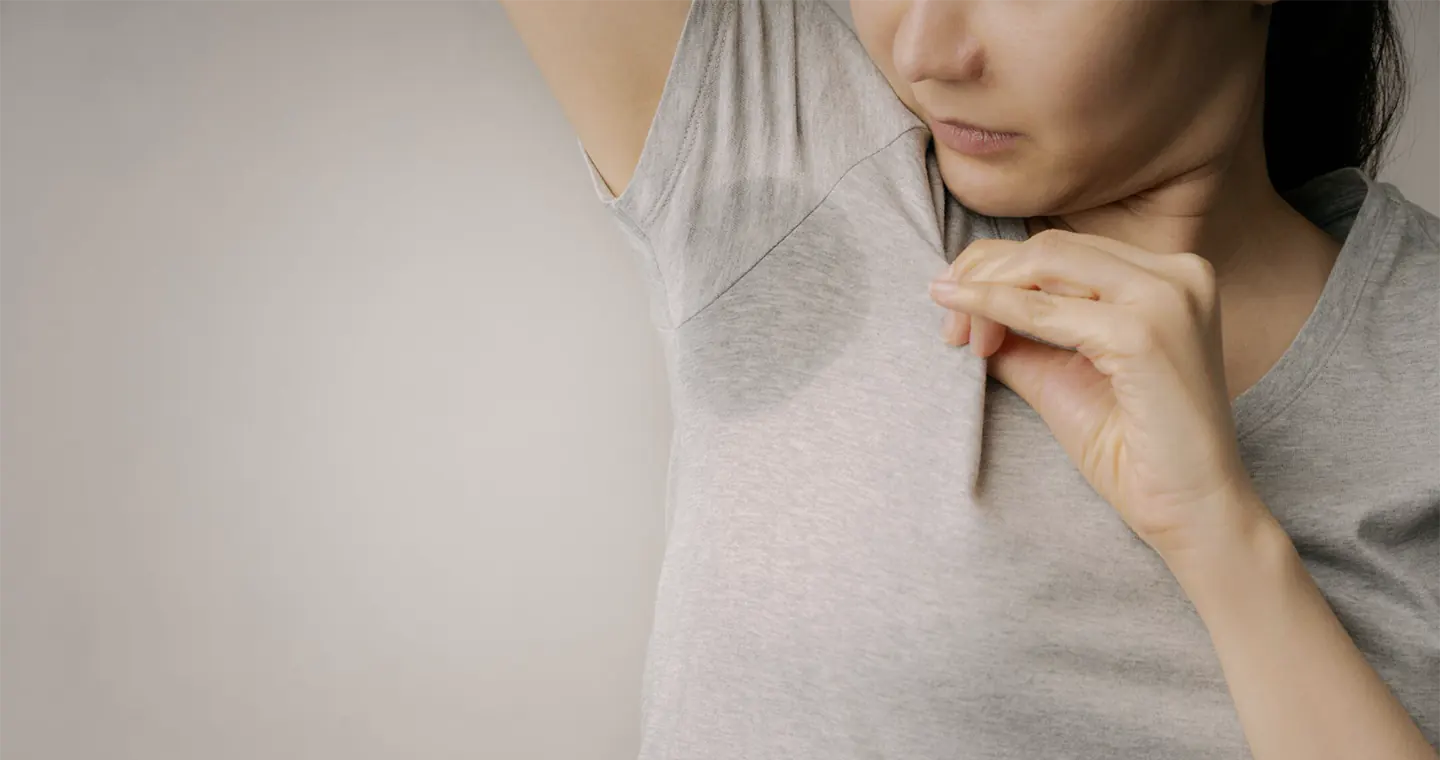
Causes of Excessive Sweating and the Treatments Available
Hyperhidrosis, or excessive sweating, can affect your comfort and daily activities. Routine tasks might feel inconvenient or uncomfortable. Whether you're managing underarm patches, clammy palms, or night sweats, it can be a persistent concern.
Understanding its causes and learning about available management options can help you make informed decisions. In this post, we'll explore the causes of excessive sweating, as well as both natural and medical approaches that may assist in managing symptoms.
What Are the Causes of Excessive Sweating?
Sweating is your body's natural cooling process, but hyperhidrosis occurs when sweat glands produce more perspiration than needed, often without common triggers like heat or physical activity.
The cause of hyperhidrosis can vary depending on the type. Below, we outline the two main forms of this condition and their possible triggers.
Types of Hyperhidrosis
There are two main types of hyperhidrosis. The first, secondary hyperhidrosis, is linked to underlying health conditions or certain medications.
It often affects large areas of the body and may occur during sleep (night sweats). Some contributing factors include:
- Health conditions such as diabetes, heart disease, rheumatoid arthritis, and thyroid dysfunction
- Medications, including some antidepressants and treatments for blood pressure, diabetes, and Alzheimer’s disease
- Neurological conditions such as Parkinson’s disease
The second type, primary focal hyperhidrosis, affects specific areas such as the face, hands, feet, or underarms. Its exact cause remains uncertain but is believed to involve overactive nerves that stimulate the sweat glands. Common external triggers may include:
- Heat or humidity
- Alcohol
- Exercise or spicy foods
- Emotional stress or anxiety
If you experience generalised sweating or sudden changes in your sweating pattern, it’s best to consult a healthcare professional for assessment.
How Anxiety Can Trigger Sweating
It’s common to sweat when feeling anxious or under stress. During these times, your body releases stress hormones such as adrenaline and cortisol, which activate sweat glands as part of the “fight or flight” response.
If you notice that nervousness or anxiety often triggers excessive sweating, you’re not alone, it’s a frequent reaction in stressful situations.
There are general ways to help manage stress-related sweating and support calmness in anxiety-inducing moments, such as job interviews or public speaking.
-
Hydration
Staying well-hydrated throughout the day helps your body regulate temperature. Aim to drink water regularly, especially before situations that might cause nervousness or stress.
-
Breathing Exercises
Taking slow, deep breaths can help calm the nervous system. Focus on inhaling through your nose for four counts, holding for four, and exhaling slowly through your mouth.
-
Visualisation
Visualisation can help you feel more composed. Spend a few minutes picturing yourself managing a stressful situation smoothly, such as a meeting or presentation. Practising this can encourage relaxation and reduce the body’s stress response.
Natural Remedies for Sweating
If you prefer to try simple, at-home methods before exploring medical options, certain natural remedies are sometimes used to help manage sweating. These can complement other approaches, but individual results vary.
-
Lemon Juice
Lemon juice has natural antibacterial properties that may help manage odour. Mix one teaspoon of lemon juice with baking soda, apply to affected areas, and rinse after 30 minutes.
-
Apple Cider Vinegar
Apple cider vinegar is sometimes used to help balance skin pH and act as an astringent. Dilute with water, apply before bed, and rinse in the morning.
-
Coconut Oil
Coconut oil contains lauric acid, which may help reduce odour-causing bacteria. Apply a small amount to clean skin as part of your nightly routine.
These methods are considered complementary rather than curative. If symptoms persist or worsen, it’s advisable to speak with a healthcare professional.
Medical Treatments for Excessive Sweating
For individuals with more persistent or significant hyperhidrosis, medical treatments may help manage excessive sweating. The appropriate approach depends on individual needs and professional assessment.
-
Medications
Certain prescription medicines can assist in managing sweating by targeting overactive sweat glands. These should only be used under medical supervision, as potential side effects such as dry mouth or dizziness may occur.
-
Injections for Hyperhidrosis
Injections using a prescription-only medicine are sometimes used to help manage excessive sweating in specific areas such as the underarms, hands, or feet. These treatments work by temporarily reducing nerve activity that stimulates sweat production. -
How Does It Work?
The injections block nerve signals that stimulate sweat production in targeted areas, such as the underarms, hands, and feet.
What to Expect:
A session is typically brief, and effects vary between individuals. The duration of benefit depends on factors such as skin type, treatment area, and metabolism. A healthcare professional can advise on suitability and what to expect.
At Flawless aesthetics, we provide a professional environment where clients can discuss suitable management options with qualified practitioners. Each consultation focuses on individual assessment and comfort. For more information or to arrange a consultation, please contact our team.
Your comfort starts with a conversation. Speak to a professional now.
If you’re exploring ways to manage excessive sweating, consider seeking advice from a qualified healthcare professional. They can help identify potential causes and recommend suitable options based on your individual circumstances.

